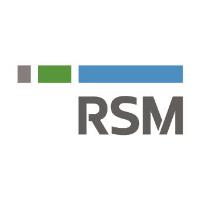RSM US, LLP Chief Economist - ''Consumer prices: Down the slippery slope''
Joe Brusuelas, Chief Economist, for RSM US LLP talks about what’s on the horizon for consumer products pricing in a rigorously cost-conscious marketplace.
The race to the bottom
While most consumer products companies are focused on improving profitability this year, there is increased risk for many in this cost-competitive environment. Last year’s winners were largely within the value sector, particularly off-price retailers. This year will likely reflect a narrowing of the pricing gap with traditional retailers. Kohl’s and Macy’s both announced strategies of sharper pricing; since then, there have been more companies singing a similar tune. Many are using Walmart and Amazon as benchmarks and will be more closely attuned to online price comparison. The ability to keep up with frequent price changes is difficult. Consumers can search and buy faster than other sellers can match. Target, keen to stay relevant in the fray, said it would sacrifice full-year margins to keep its prices competitive. We could be looking at a deep black hole in terms of price reductions as retailers race to address a demanding marketplace.
Changes to come at Costco
Costco recently announced its intention to raise its membership fees around midyear. This will be phased in over the next year or so. Of note, Costco has typically raised its membership fees every five to six years as an offset to its competitive pricing. Its management recently indicated it believed it was facing stiffer competition in the pricing of a number of visible products and categories, implying this move could have more significance than in the past. Additionally, Costco’s promotional program will be tweaked to emphasize sharper pricing on fewer items. The retailer’s membership fees approximated 72 percent of its operating income last year, its operating margin was around 3 percent and gross margin was 11 percent. This successful formula has maintained steady increases in membership and renewal rates.
Consumers continue to focus more on price than fashion
Value-conscious consumers are placing different emphasis on fashion, quality and price today than in previous years; a trend apparently poised to continue. There are different considerations that are determining where to make purchases. Omnichannel is only part of the answer, although it does exert downward pressure on prices. The value proposition was enhanced by the consumers’ willingness to frequent discount channels more often; that is, remaining focused on the brand but at a lower price. Many brands have introduced a lower price point in some categories to attract that value customer.
Off-price retail has become even more relevant
The TJX Companies, which includes brands such as T.J.Maxx, Marshalls, HomeGoods, and Sierra Trading post, continues to raise the bar for the industry. We estimate factory outlets and off-price retailers combined sales approached $70 billion last year, nearly approximating that of the six largest department store companies, in part due to the latter’s store closing programs. Additionally, TJX will be expanding further into home-related categories as well as international markets.
One has always questioned the availability of fashion-right merchandise in off-price stores; however, given industry consolidation and increased buying clout, these strong retailers continue to gain market share. Their sales increased roughly 40 percent between 2011 and 2016. Many brands create specific merchandise for these outlets that are not necessarily identical to the products sold through department stores. Additionally, other brands have been resurrected and sold exclusively through these outlets, offering more of a perceived value. This segment has become even more saturated given growth by department stores such as Saks, Nordstrom, Neiman Marcus and Bloomingdales.
Unknown variable
The major variable, and likely unknown for months, will be the impact of import taxes as reform policies like the proposed border adjustment tax have yet to be realized. History suggests these and other costs will not likely be passed through to consumers immediately, but rather a phase-in that could ultimately impact profitability through the supply chain.
About RSM US LLP
RSM US LLP is the leading provider of audit, tax and consulting services focused on the middle market, with 9,000 people in 90 offices nationwide. It is a licensed CPA firm and the U.S. member of RSM International, a global network of independent audit, tax and consulting firms with more than 41,000 people in over 120 countries. RSM uses its deep understanding of the needs and aspirations of clients to help them succeed. For more information, visit rsmus.com, like us on Facebook, follow us on Twitter and/or connect with us on LinkedIn.
For information about RSM’s consumer products services please contact Pat Lonsdale at pat.lonsdale@rsmus.com or 210.253.1554. Pat is an assurance partner and industry lead for RSM’s San Antonio consumer products team.
RSM US LLP
-
Maria Dunn Marketing Manager
- May 15, 2017
- (210) 828-6281
- Send Email


